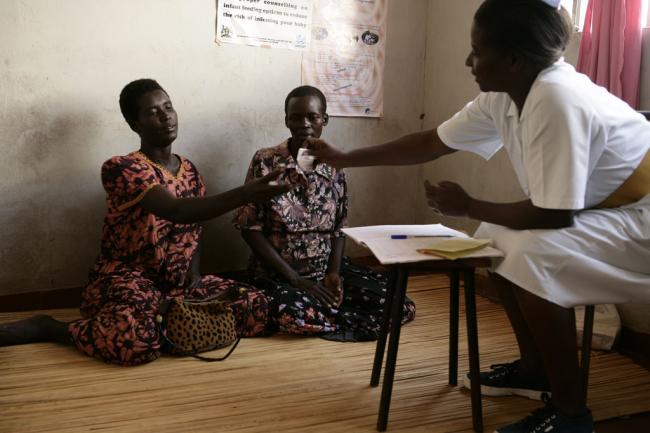
UN report urges rights-based approach to reduce HIV infections among drug users
The report, Do no harm: health, human rights and people who use drugs, which was issued by the Joint UN Programme on HIV/AIDS (UNAIDS), shows that between 2010 and 2014, the failure of many countries to adopt people-centred approaches resulted in no reduction in the global number of new HIV infections among people who inject drugs.
And the world missed the General Assembly’s target set in 2011 to reduce HIV transmission among people who inject drugs by 50 per cent by 2015.
“Business as usual is clearly getting us nowhere,” said Michel Sidibé, Executive Director of UNAIDS. “The world must learn the lessons of the past 15 years, following the example of countries that have reversed their HIV epidemics among people who inject drugs by adopting harm reduction approaches that prioritize people’s health and human rights.”
Those countries included China, Iran, Kenya, Moldova and Portugal.
Recommendations
The report also presents the evidence base for five policy recommendations and 10 operational recommendations that countries should apply to turn around their HIV epidemics among people who inject drugs. These include the implementation of harm reduction programmes to scale and the decriminalization of the consumption and possession of drugs for personal use.
Data demonstrate that countries implementing health- and rights-based approaches have reduced new HIV infections among people who inject drugs.
In other countries, strategies based on criminalization and aggressive law enforcement have created barriers to harm reduction while having little or no impact on the number of people who use drugs.
Imprisoning people for the consumption and possession of drugs for personal use also increases their vulnerability to HIV and other infectious diseases, such as hepatitis B, hepatitis C and tuberculosis, while incarcerated.
Health is human right
“Health is a human right,” said Mr Sidibé. “Investment in people-centred policies and programmes for people who use drugs is the crucial foundation for a global drugs policy that not only saves lives but is also cost-effective.”
The UNAIDS Fast-Track approach has a set of targets for 2020 that include reducing new HIV infections to fewer than 500,000. It also calls on countries to ensure that 90 per cent of the more than 12 million people who inject drugs worldwide have access to combination HIV prevention services, including needle–syringe programmes, opioid substitution therapy, condoms and access to counselling, care, testing and treatment services for tuberculosis and bloodborne viruses such as HIV and hepatitis B and C.
Achieving these targets will be a significant step towards ending the AIDS epidemic as a public health threat by 2030.
The UN General Assembly’s speical session on the world drug problem will run at Headquarters from 19 to 21 April.
Photo: UNICEF/Shehzad Noorani
Support Our Journalism
We cannot do without you.. your contribution supports unbiased journalism
IBNS is not driven by any ism- not wokeism, not racism, not skewed secularism, not hyper right-wing or left liberal ideals, nor by any hardline religious beliefs or hyper nationalism. We want to serve you good old objective news, as they are. We do not judge or preach. We let people decide for themselves. We only try to present factual and well-sourced news.







